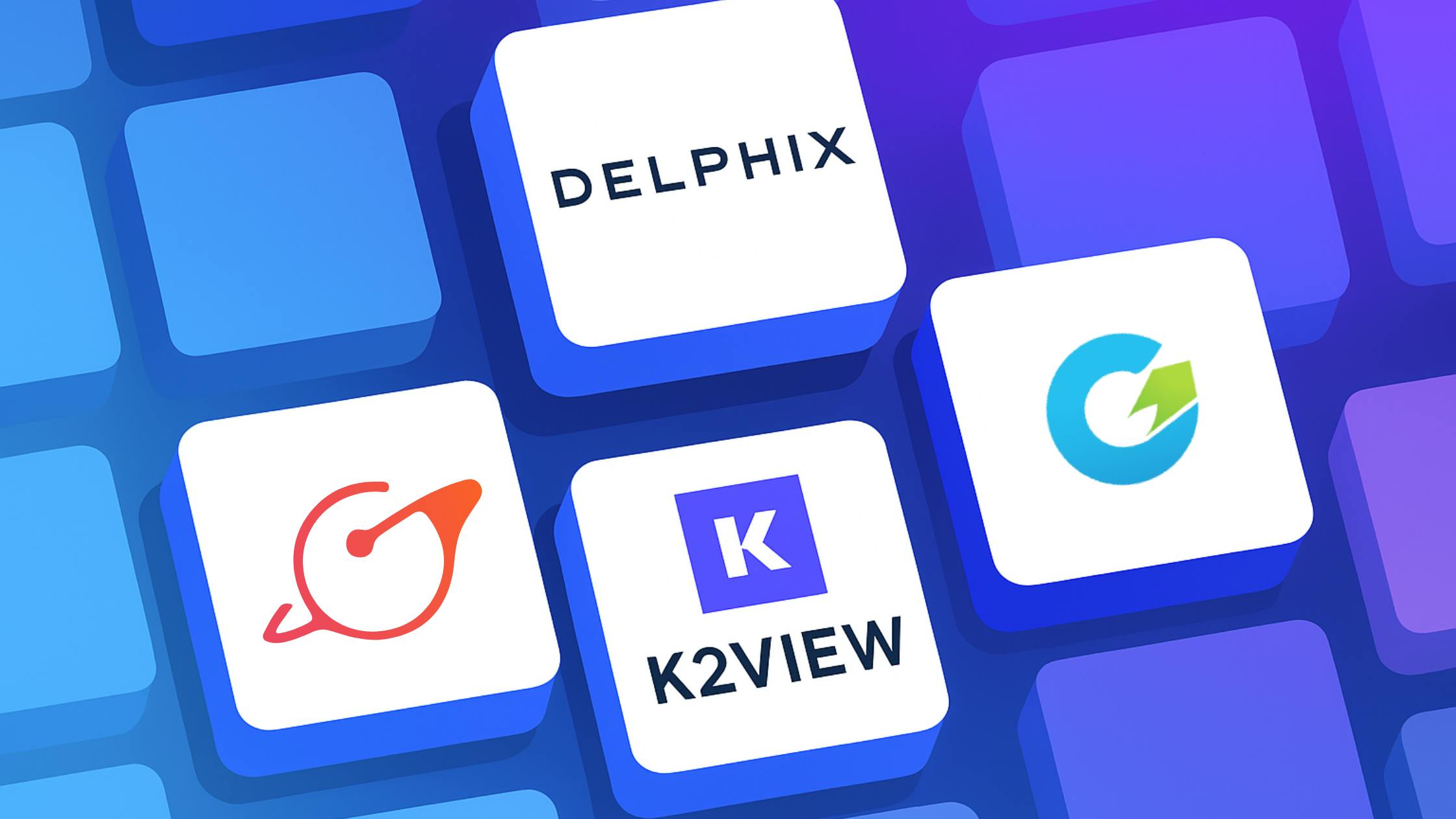Gigantics is engineered to bridge the gap between representative data needs and security mandates. Its architecture enables the provisioning of protected datasets across any environment.
- Technical Capabilities: Cross-platform referential integrity, native API integration, and compliance with NIS2, GDPR, and DORA.
- Value Proposition: Eliminates manual ticket dependency, making data security an integrated part of the development and QA workflow.
Delphix implements a data abstraction layer to provide efficient virtual database copies. By managing shared data blocks, it drastically reduces storage footprint and facilitates massive dataset refreshes without duplicating physical infrastructure.
Highly effective for storage consolidation, but requires specialized virtualization management and deep integration with infrastructure policies.
Informatica offers a comprehensive suite for organizations with monolithic infrastructures and massive persistent data volumes. Its core focus is automated sensitive data discovery and subsetting for storage optimization.
Due to its architectural complexity, many organizations seek Informatica alternatives that offer smoother integration with modern platform engineering and automated deployment pipelines.
K2View specializes in distributed architectures using individual micro-databases for each business entity (e.g., customer or order). This allows for dynamic data orchestration, ensuring services consume a unified, real-time view.
Ideal for microservices ecosystems requiring absolute data consistency across multiple applications and APIs under high concurrency.
Unlike extraction tools, GenRocket focuses exclusively on synthetic test data generation via business logic modeling, eliminating the need to access production environments.
The standard for massive scalability in load and performance testing where volume outweighs the need for production-source fidelity.
Conclusion: Which TDM Software to Choose in 2026?
The selection of a Test Data Management (TDM) software must align with your technical architecture and DevOps maturity goals:
- For DevOps & CI/CD Agility: Gigantics provides the most efficient integration via an API-first approach. Its self-service model maximizes Time-to-Value by enabling secure, autonomous data provisioning.
- For Legacy Enterprise Infrastructure: Informatica and Delphix offer the capacity to manage and virtualize traditional environments during controlled transitions.
- For Microservices Consistency: K2View is the preferred choice for entity-based data delivery with absolute integrity across distributed apps.
- For Load & Performance Testing: GenRocket remains the standard for generating synthetic data at scale where volume is the critical requirement.



